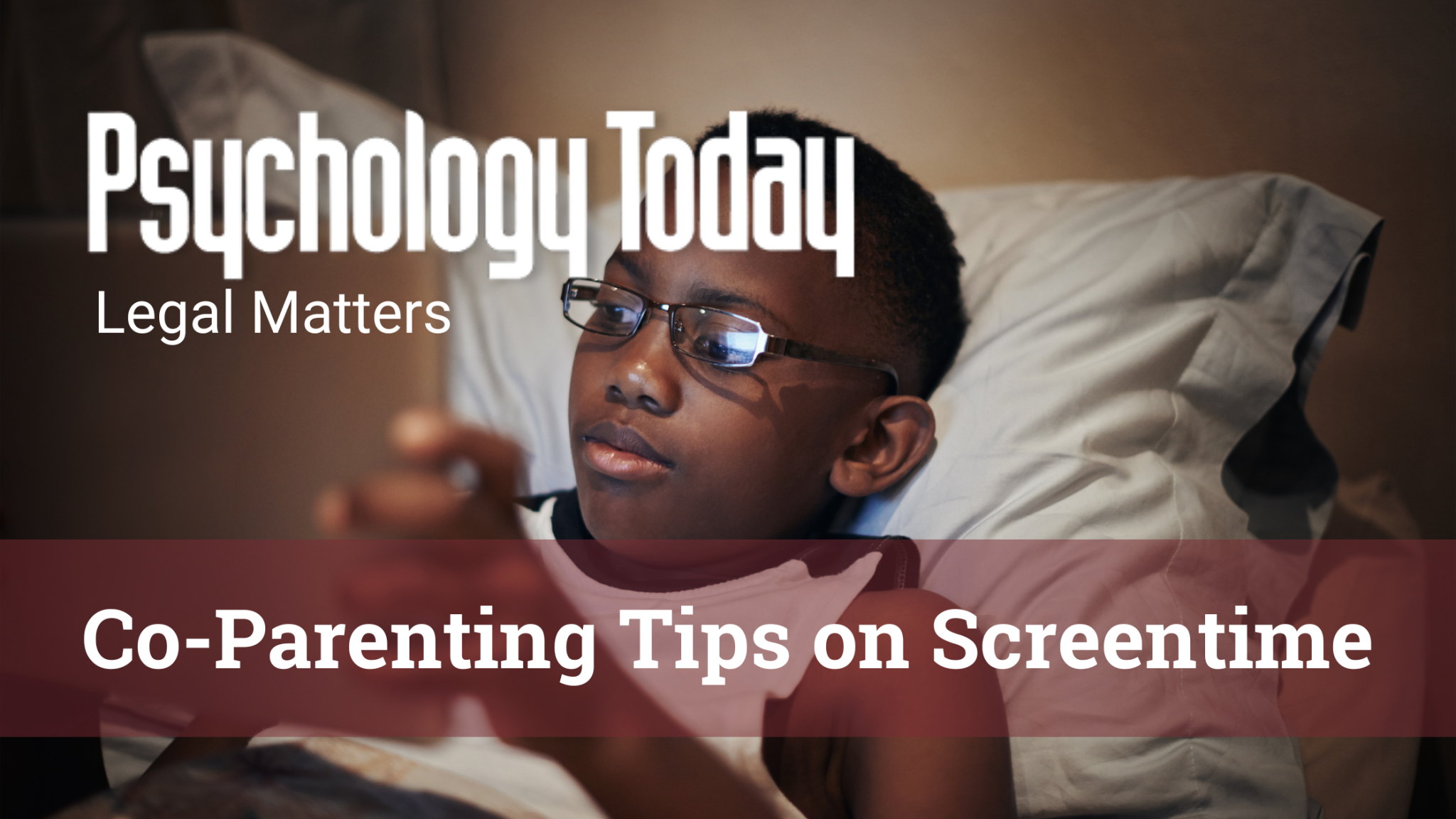6 essential tips for a balanced approach to handling device use after divorce.
In light of recent studies highlighting the dangers of excessive screen time for children, it is essential to explore how it affects the co-parenting dynamic during divorce. It may even be wise to include provisions regarding screen time in your divorce settlement agreement.
Divorcing parents often disagree about the most routine issues—bedtime, meals, and homework. But some of the most significant disagreements revolve around screen time, cell phone access, and selection of video games. In my family and matrimonial law practice, I have seen how arguments around the use of electronic devices can actually inflame custody disputes.
Many parents find themselves battling with their children and their spouses about issues such as how much screen time a child should be permitted, what limitations should be set, whether parents should be accessing their children’s text messages, and how often a parent should be texting during the other parent’s access time with the children.
Parent-child relationships are sometimes irreparably damaged over video games and cell phone usage. Parents sometimes find that their children appear more attached to their phones than their parents. Sometimes, separating a child from their electronic device can lead to tantrums or even violent outbursts.
And when your co-parent does not support the limits you are attempting to set regarding the use of electronics and video games, the stakes become even higher.
I spoke with psychologist Juliet Cooper about this important issue. Cooper believes that if both parents set the same appropriate limitations and clear boundaries, the child will build a routine around device usage. This, in turn, facilitates an easier transition away from their device in both households.
Here are six tips to help navigate this complex issue.
1. Set clear boundaries.
For example, when your child returns from school, you might allow them some downtime, set aside time for homework, and then, once homework is finished, allow your child to have some screen time.
With clear boundaries, Cooper says, your children will have less opportunity for power struggles over their devices and video games.
Having a system and clear rules means the child knows what to expect and can mentally prepare. It is hard for the child to shift from a screen to another activity, so you, as the parent, need to make it easier.
2. Video games are different.
Cooper reminds us that video games include a social aspect for your child. When you demand your child cease playing Fortnite, for example, you are actually asking that your child leave the “party” as they are playing that game with other children.
The games are physically energizing and stimulating, so children need to be able to switch to another physical activity to fully distract them. They also need time to prepare their friends and themselves before exiting the game.
As a parent, try to be sensitive to your child’s needs in this different forum.
3. Model the behavior you want to see in your child.
Another issue to consider is that parents are also frequently on their devices. As a parent, you should do your best to model appropriate behavior. You cannot expect your child to give up time on their phone when they are consistently seeing you on your phone.
Keeping in mind that you and your child are likely seeing less of each other since separating from your co-parent, this is even more important: your child wants your attention.
4. Remember, your child is going through a significant transition.
Even if you are having what you consider to be a model divorce, and you are doing everything “right,” it is important to remember that your children are experiencing the changing family dynamics in their own way. Your priority should always be your children’s health (emotional and physical) and welfare. They want to be respected, which is particularly needed when they are feeling that most of their life is out of their control.
5. Do everything you can to align with your co-parent on this issue and others.
This is difficult for many divorcing parents, but it is critical, in this particular case, to do everything you can to set the same boundaries for the use of electronic devices in both households.
It bears repeating that study after study shows that parental conflict does negatively affect your children. Keeping things civil, calm, and unemotional between you and your co-parent can go a long way in how your children—and you—survive this relationship post-divorce.
Even though it might be difficult, it is imperative to foster the relationship between your children and their other parent. Your children are a product of both parents, and they need both of you in their lives.
6. Do not hesitate to ask for help if you feel overwhelmed.
If you are feeling overwhelmed, reach out to friends and family or seek out a therapist or attorney. Please do not burden your children with your concerns.
Remember, taking care of your and your children’s mental and physical health should be a top priority during this incredibly stressful time.
Note: These opinions should not substitute as a diagnosis or as legal or mental health advice, as each case is unique. If you are facing a similar situation, please contact a mental health professional or family law attorney in your area.

